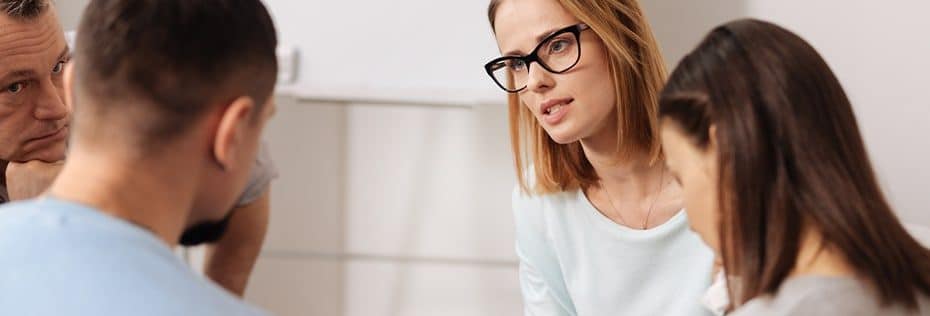Tag: Australia
Modelling the growth of minerals

What do precious gems, seashells, and bones have in common? The answer is minerals. Minerals are chemically complex solids that are mostly formed naturally by Earth’s and space’s geological processes but can also be produced by many living species, including humans. Dr Raffaella Demichelis, at Curtin University, Australia, is using computational chemistry to see how these minerals form and how […]
Promising results with a new treatment for Foot-and-Mouth disease

Foot-and-Mouth disease (FMD) is a viral disease that affects many farm animals, including cattle, buffalo and small ruminants. In many developing countries, farmers often don’t have access to preventative treatments, and outbreaks are common. Professor Emeritus Peter Windsor and his team at the University of Sydney, Australia, believes a new product called Tri-Solfen may be an inexpensive and effective solution […]
Read More… from Promising results with a new treatment for Foot-and-Mouth disease
A place of knowledge and connection: Developing a health and wellbeing framework for public libraries

Debra Rosenfeldt, Head of Library Sector Engagement at State Library Victoria and Jane Cowell, CEO, Yarra Plenty Regional Library Corporation are part of a team of library professionals who are developing a Health and Wellbeing Framework for public libraries in Victoria, Australia. The research undertaken demonstrates how libraries, through collaboration with their health and community partners, can deliver in the […]
The unwanted tenant: Parasitic nematodes in Aboriginal communities

Strongyloides stercoralis and HTLV-I are endemic pathogens that impact millions of people worldwide, particularly those in socioeconomically deprived communities. Dr Catherine Gordon and her team, led by NHMRC Leadership Fellow Professor Don McManus at QIMR Berghofer in Brisbane, Australia, summarise the current data on S. stercoralis and HTLV-I infections in Tropical Australia, and advocate for the inclusion of Strongyloides […]
Read More… from The unwanted tenant: Parasitic nematodes in Aboriginal communities
Digital Transformation in Financial Services: The Age of Fintech

FinTech, within the broader context of financial innovation, is disrupting the financial services industry in every aspect. However, its ability to thrive and scale, especially across borders, faces numerous challenges. Professor Anne-Laure Mention, Director of the Global Business Innovation Enabling Capability Platform at RMIT University, Melbourne, Australia, has made a significant contribution to our understanding of FinTech and Open Innovation, […]
Read More… from Digital Transformation in Financial Services: The Age of Fintech
Accents of the Caribbean: How vowel pronunciations pivot, shift and merge

Prof James Walker of the Department of Languages and Linguistics at La Trobe University in Melbourne, Australia, is a sociolinguistic expert who has conducted extensive research on the English language in various parts of the world, including North America and the Caribbean. Together with Prof Miriam Meyerhoff at the University of Oxford, UK, their research focuses on different vowel pronunciations […]
Read More… from Accents of the Caribbean: How vowel pronunciations pivot, shift and merge
A safer, effective treatment for autoimmune glomerulonephritis

In the disease autoimmune glomerulonephritis, the body’s own immune system attacks the blood vessels of the glomeruli, the part of the kidney that filters the blood. This condition is life-threatening, but current treatments are limited and carry a high risk of serious side-effects. Recently, Dr Dragana Odobasic of Monash University, Melbourne, Australia, and her colleagues investigated the potential of tolerogenic […]
Read More… from A safer, effective treatment for autoimmune glomerulonephritis
Cities in motion: To make our urban future sustainable, reconsider car dependency

Mark Stevenson, Professor of Urban Transport and Public Health at the University of Melbourne, warns that an increasingly urbanised world will not be sustainable unless governments reduce reliance on privately owned automobiles. Evidence from Beijing and elsewhere shows that car use results in millions of deaths from road crashes, pollution and chronic diseases. Cities should instead encourage public transport, walking […]
Read More… from Cities in motion: To make our urban future sustainable, reconsider car dependency
Australian Genomics: Integrating genomic testing into healthcare

Over the past few years, researchers have developed many new techniques to collect information from our genome. This can help identify inherited conditions and some types of cancer, for example. However, these methods have often been kept within the limits of scientific research. Now, Australian Genomics is keen to push their use into a clinical setting, where they can benefit […]
Read More… from Australian Genomics: Integrating genomic testing into healthcare
Fathers who use violence: Shifting the focus toward the perpetrator

Professor Cathy Humphreys of the University of Melbourne and Dr Susan Heward-Belle of the University of Sydney examine the best ways we can bring about organisational change in the way we handle domestic abuse and domestic violence by fathers, using communities of practice that allow bottom-up participatory action research to bring about top-down complex systems change. When examining the field […]
Read More… from Fathers who use violence: Shifting the focus toward the perpetrator